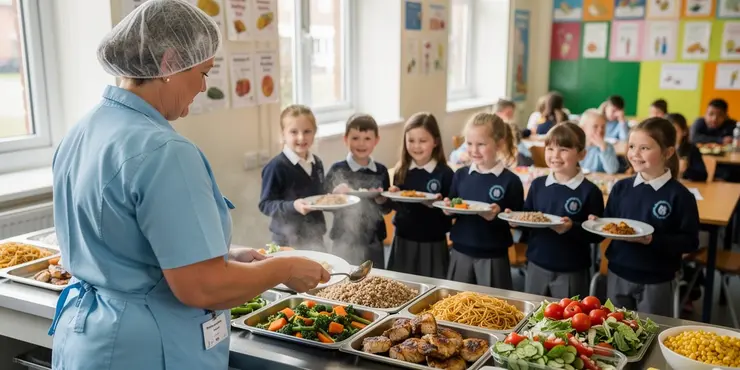
Find Help
More Items From Ergsy search
-
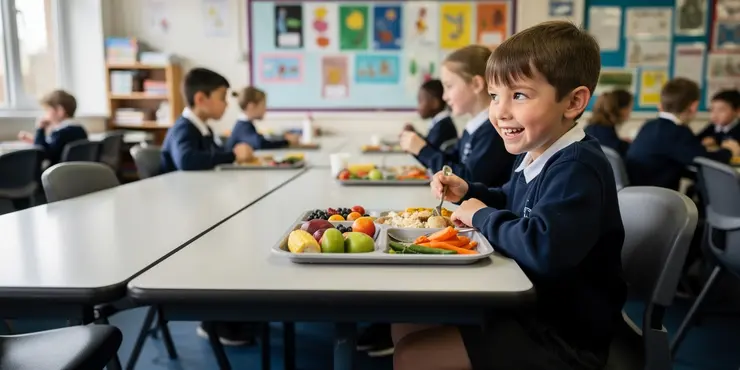
School meals in the UK?
Relevance: 100%
-
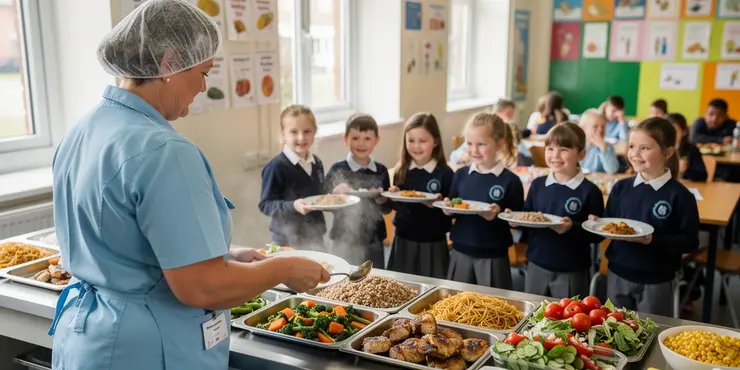
How are school meals provided in the UK?
Relevance: 89%
-
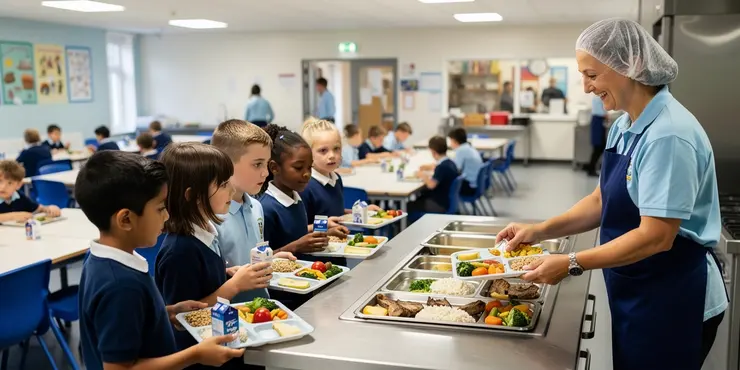
Who is responsible for providing school meals in the UK?
Relevance: 86%
-
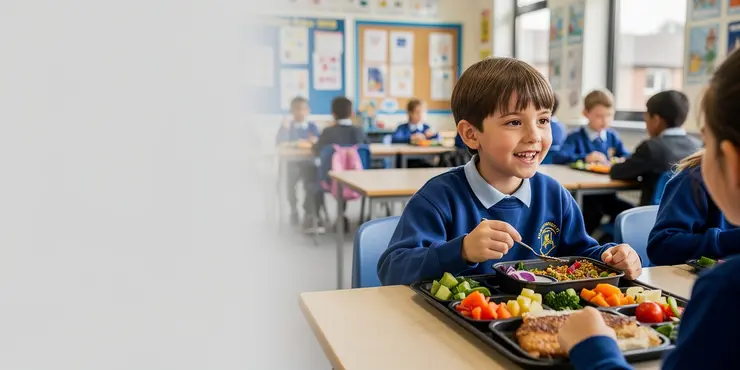
Are school meals free for all students in the UK?
Relevance: 86%
-
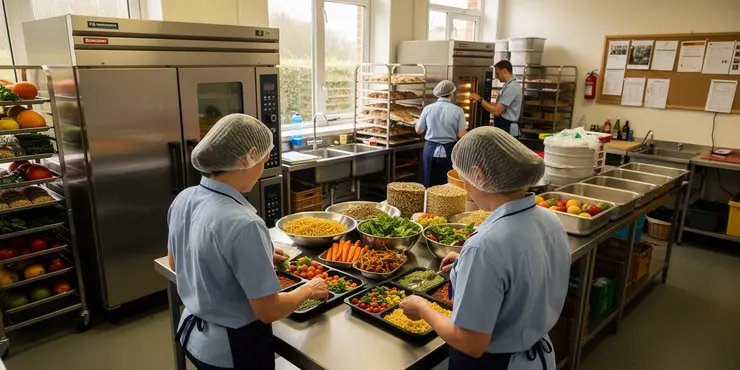
Are school meals inspected for quality and standards?
Relevance: 85%
-
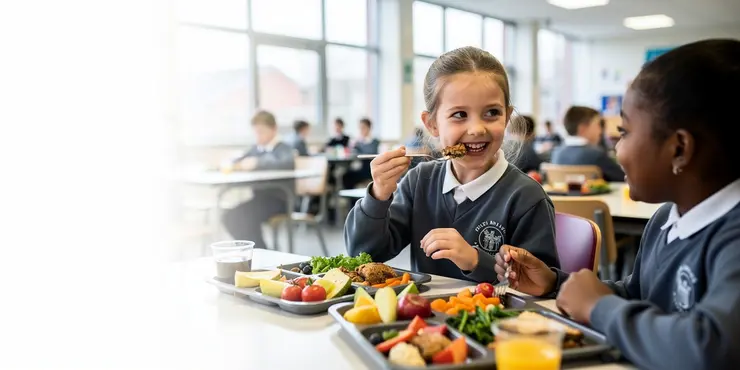
What is the purpose of providing school meals in the UK?
Relevance: 85%
-
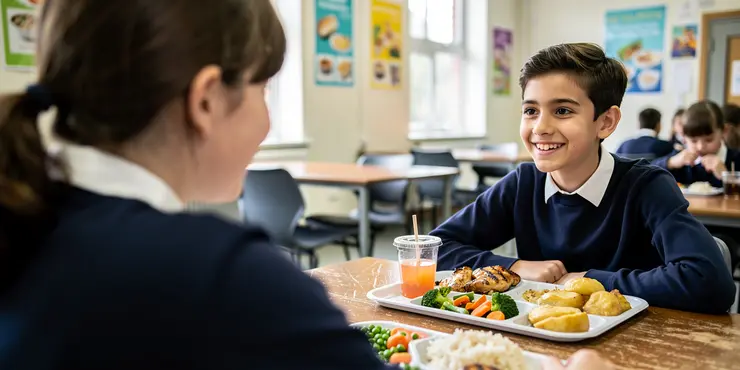
What is included in a typical school meal in the UK?
Relevance: 85%
-
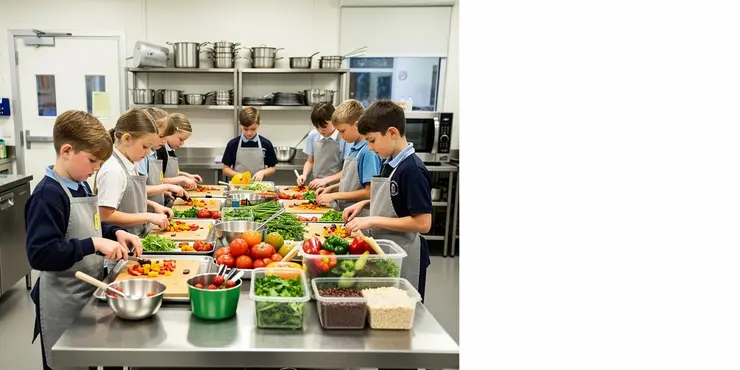
Are there educational components to the school meal program?
Relevance: 83%
-
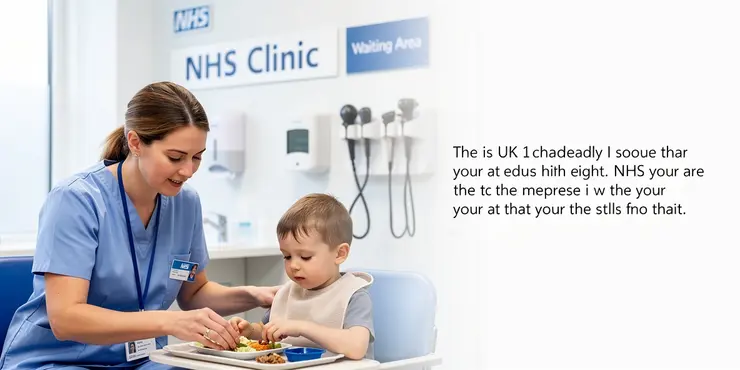
Who provides the funding for free school meals in the UK?
Relevance: 83%
-
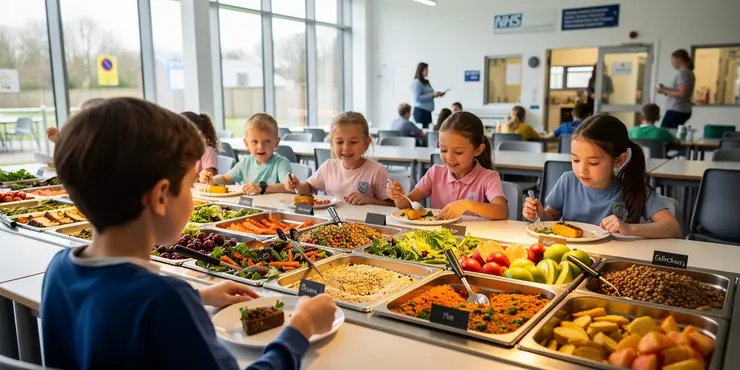
Are vegetarian or vegan options available in UK school meals?
Relevance: 82%
-
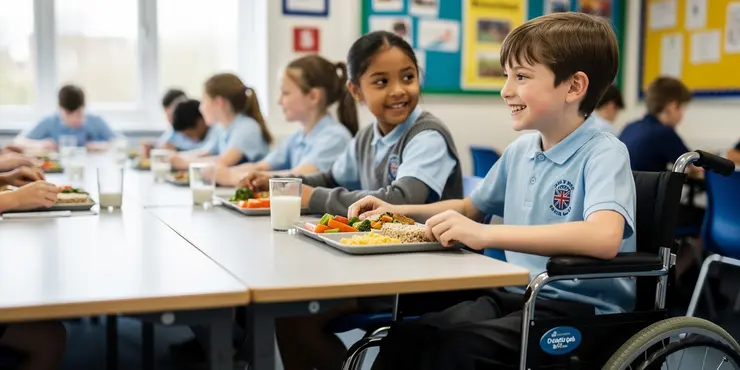
Can children with disabilities access school meals?
Relevance: 82%
-
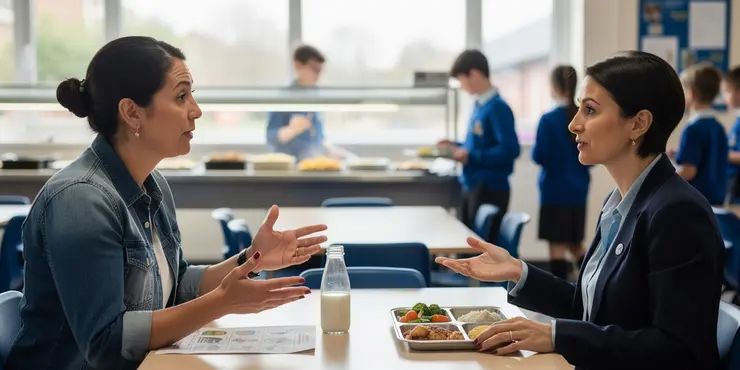
How can parents provide feedback on school meals?
Relevance: 79%
-
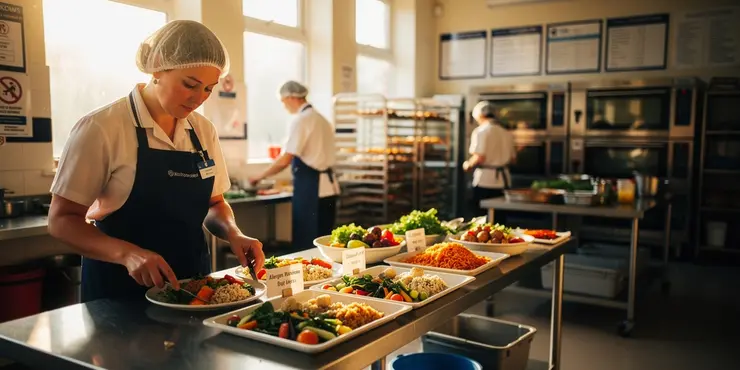
How are special dietary requirements catered for in school meals?
Relevance: 79%
-
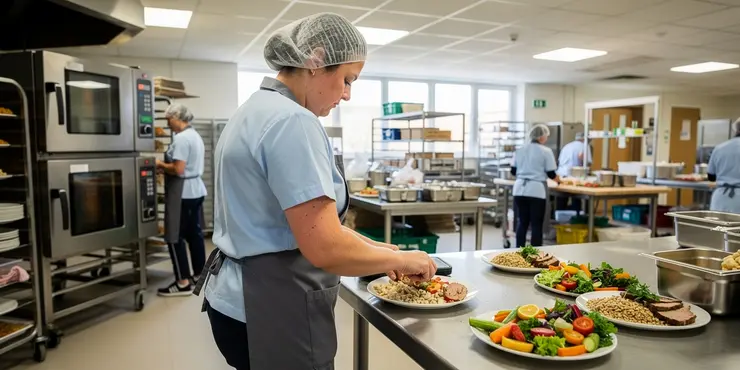
What measures are taken to ensure food safety in school meals?
Relevance: 75%
-

What criteria must be met for a child to be eligible for free school meals?
Relevance: 75%
-
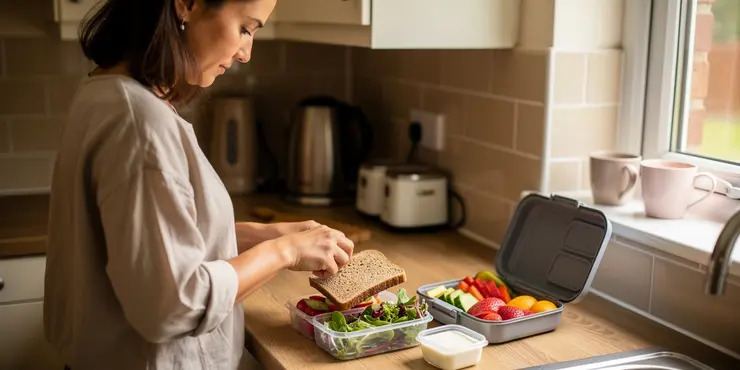
Can parents provide packed lunches instead of school meals?
Relevance: 73%
-
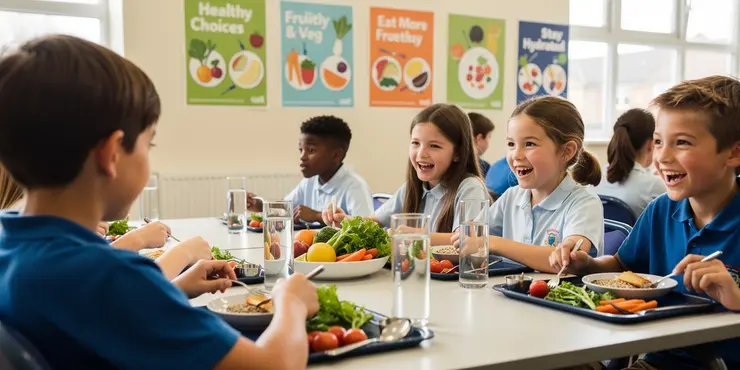
Is there a focus on healthy eating in UK school meals?
Relevance: 65%
-

Ministers to Debate Extension of Free School Meals for Low-Income Families
Relevance: 56%
-
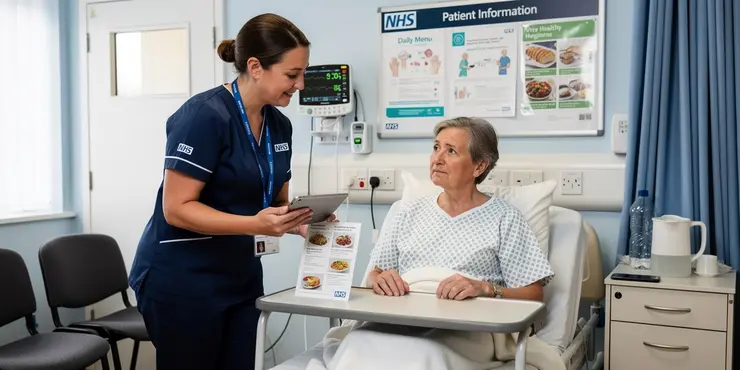
What time are meals served?
Relevance: 51%
-
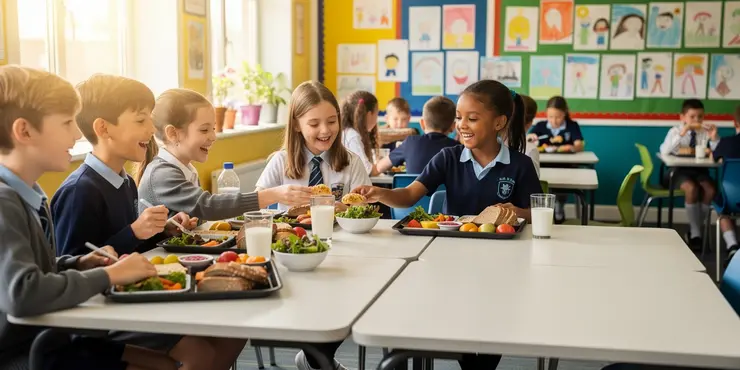
Calls for Better School Lunch Standards After Nationwide Survey
Relevance: 49%
-

See4School
Relevance: 47%
-
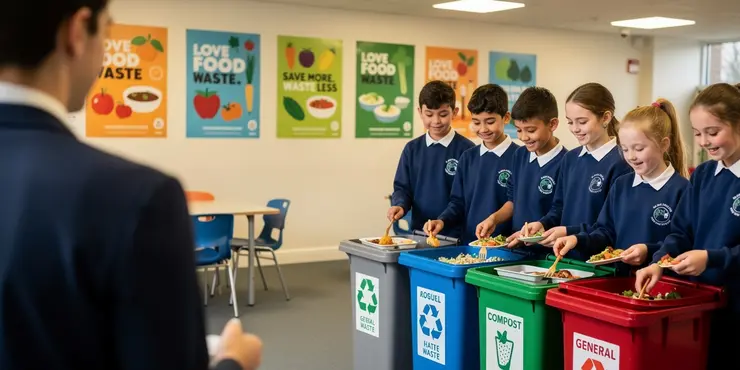
Are there any initiatives to reduce food waste in schools?
Relevance: 47%
-
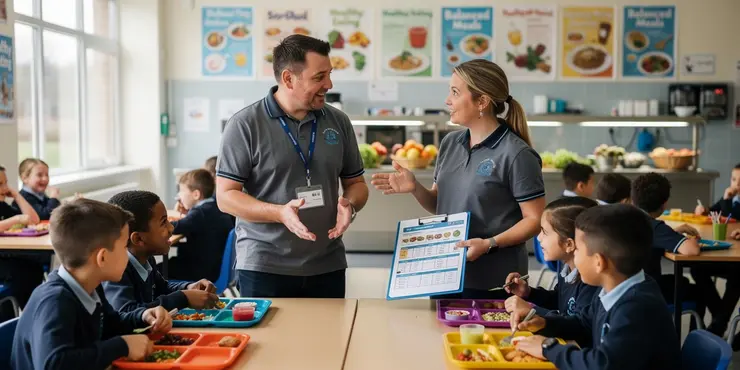
How are school meal providers selected?
Relevance: 46%
-
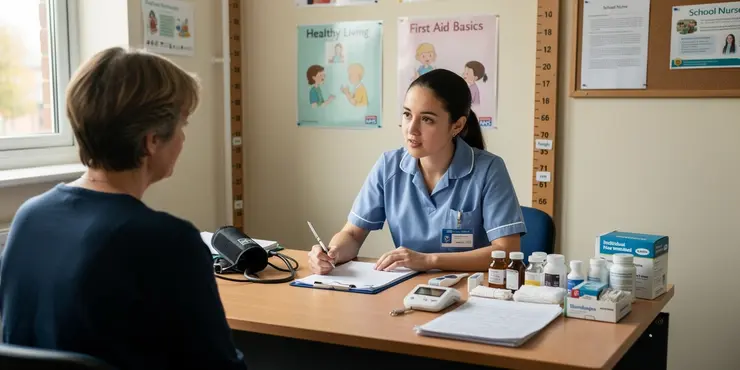
How are food allergies managed in UK schools?
Relevance: 44%
-
How can I calculate the fat content in my meals?
Relevance: 42%
-
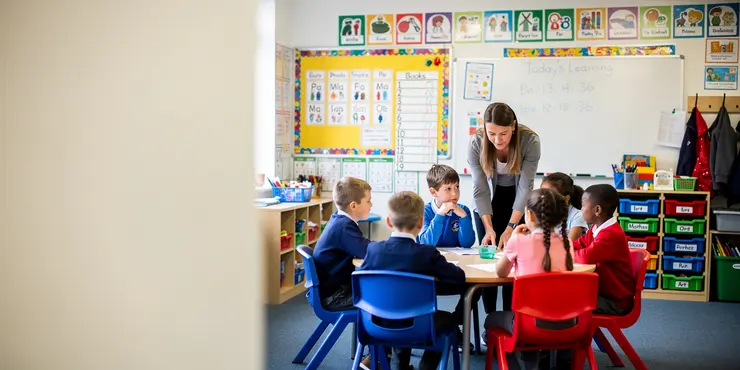
Do SEND children attend mainstream schools?
Relevance: 41%
-
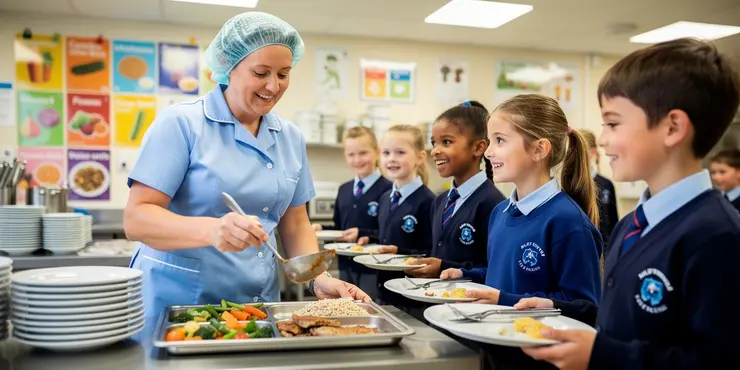
Do school meals include both hot and cold options?
Relevance: 40%
-

What is the SENCO's role in a school?
Relevance: 40%
-
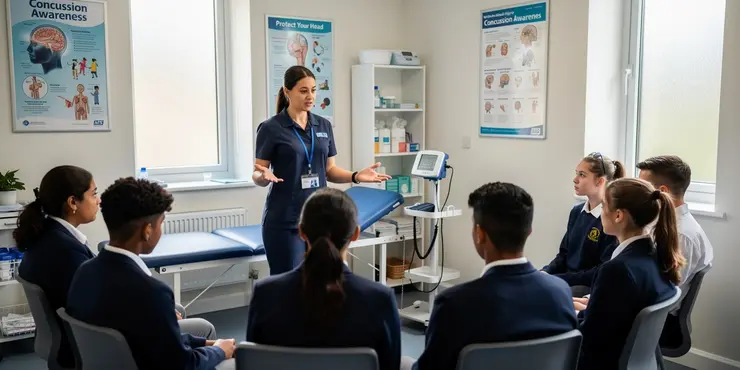
What role do schools play in managing concussions?
Relevance: 39%
-

Are there specific laws governing SEND in schools?
Relevance: 39%
-

What happens to my loans if I go back to school?
Relevance: 38%
-
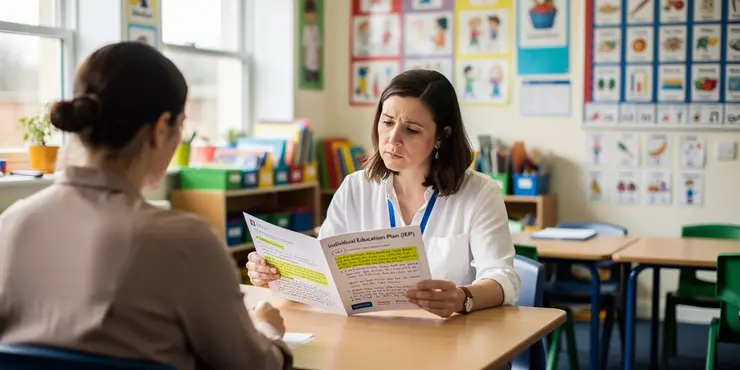
What support is available for SEND children in schools?
Relevance: 38%
-
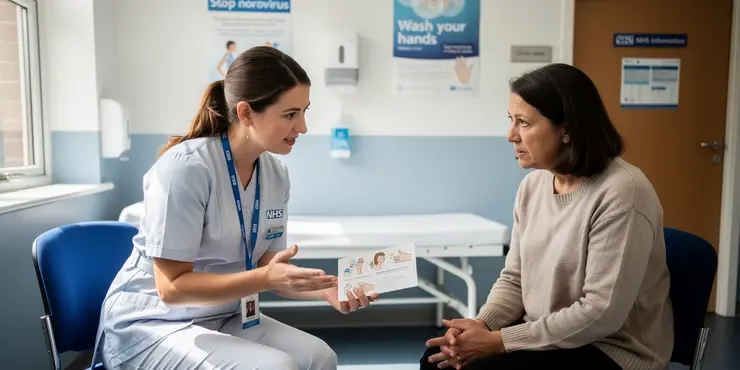
Can I go to work or school if I have norovirus?
Relevance: 38%
-
What role do schools play in supporting the social media ban?
Relevance: 37%
-

Calls to Ban Vapes Near School Grounds Gain Momentum
Relevance: 36%
-
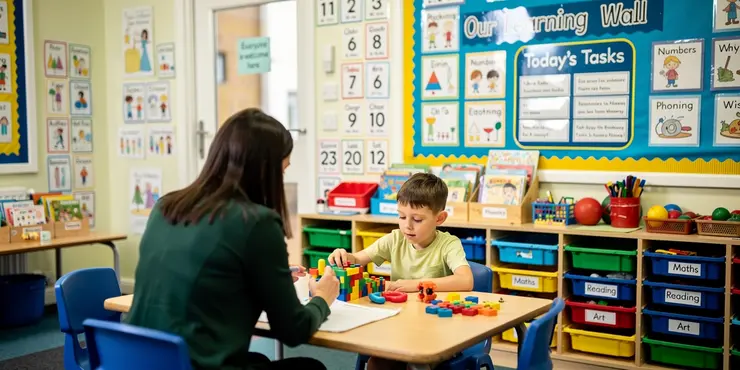
How can schools create an inclusive environment for SEND children?
Relevance: 36%
-
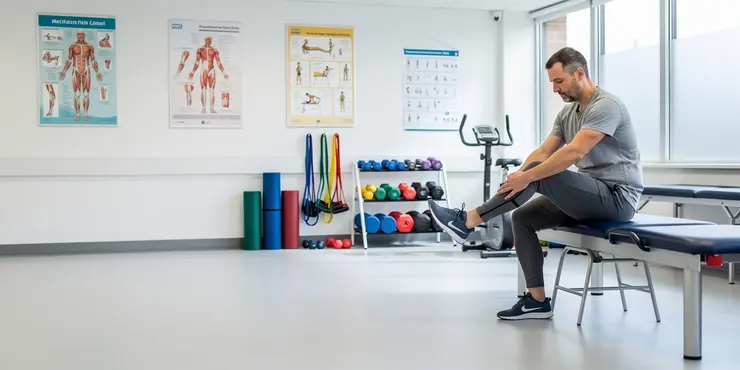
Joint School - Knee Exercises
Relevance: 32%
-
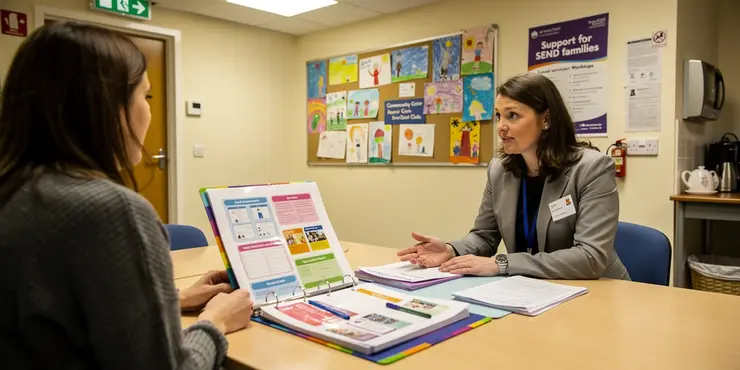
What support is available outside of school for SEND children?
Relevance: 30%
-

Joint School - Hip Exercises
Relevance: 28%
-

New Government Benefits for Low-Income Families
Relevance: 27%
Introduction to School Meals in the UK
School meals in the UK play a crucial role in ensuring that children receive at least one nutritious meal each day. The provision of these meals is governed by several guidelines and policies that guarantee their quality and accessibility. Over the years, the UK government has implemented initiatives to improve the nutritional standards of school meals, aiming to promote healthy eating habits among young students.
Funding and Eligibility
In the UK, school meals are funded through a combination of government support and contributions from local authorities. Many children are eligible for free school meals (FSM) based on criteria such as household income and receipt of certain benefits. The eligibility for FSM is an important provision that seeks to support low-income families and prevent any child from being at a disadvantage due to financial constraints.
Nutritional Standards
The nutritional quality of school meals is a primary concern. In England, for instance, the School Food Standards apply to ensure that meals provided in schools are nutritious and balanced. These standards specify the types and portions of food groups to be served, emphasizing fruits, vegetables, and whole grains while limiting salt, sugar, and fat content. The aim is to combat childhood obesity and encourage lifelong healthy eating habits.
Menu Planning and Local Sourcing
Schools are encouraged to involve students, parents, and the early years staff in menu planning to cater to diverse tastes and dietary needs. Many schools also make an effort to source ingredients locally, which supports the local farming industry and ensures fresh produce. Furthermore, some schools have adopted seasonal menus to align with what is locally available, reducing the carbon footprint associated with food transportation.
Universal Infant Free School Meals (UIFSM)
Launched in 2014, the UIFSM policy provides free meals to all children in Reception, Year 1, and Year 2 in England, regardless of economic background. This initiative aims to instill healthy eating habits from an early age and relieve financial pressure on families. Similar schemes are also encouraged across Scotland, Wales, and Northern Ireland, although the specific policies might vary slightly.
Initiatives and Challenges
Several initiatives, such as the Healthy Schools Rating Scheme, support schools to improve physical activity and nutrition among students. Despite these efforts, there are challenges in consistently maintaining high standards, often due to budget constraints and rising food costs. Ensuring that all children receive the same quality of meals, independent of location, remains a goal for the future.
Conclusion
The provision of school meals in the UK is a multifaceted process that combines funding, standards, and community involvement to create a system aimed at fostering healthy growth and development for students. Continual improvements and innovations in this service are necessary to meet the evolving needs of children and to ensure that every child can benefit from a nutritious mid-day meal.
Introduction to School Meals in the UK
School meals in the UK are very important. They make sure that children get at least one healthy meal every day. There are rules that make sure these meals are good and easy for everyone to get. The government has made plans to make school meals better and teach children to eat healthy.
Funding and Eligibility
In the UK, school meals are paid for by the government and local groups. Some children can get free school meals (FSM). To get FSM, a family needs to earn less money or get certain help from the government. These meals help families with little money, so all children have the same chance to eat well.
Nutritional Standards
It is very important that school meals are healthy. In England, the School Food Standards are rules to make sure meals are good for you. These rules say schools should serve fruits, vegetables, and whole grains. They also say to give less salt, sugar, and fat. This helps stop children from becoming overweight and teaches them to eat well.
Menu Planning and Local Sourcing
Schools ask students, their parents, and teachers to help plan the menus. This way, meals can be tasty and fit different needs. Many schools buy food from local farms. This helps local farmers and gives children fresh food. Some schools change menus to use food that grows in different seasons.
Universal Infant Free School Meals (UIFSM)
Started in 2014, UIFSM gives free meals to all children in Reception, Year 1, and Year 2 in England. This does not depend on how much money the family has. It helps children eat healthy from a young age and saves money for families. Similar plans are in Scotland, Wales, and Northern Ireland, but the rules can be a little different.
Initiatives and Challenges
Projects like the Healthy Schools Rating Scheme help schools improve kids' activity and what they eat. But, there are problems like keeping the food good with limited money and rising food prices. It's important that all children, no matter where they are, get the same good meals.
Conclusion
Making sure children get good school meals in the UK is a big job. It takes money, rules, and help from the community to make sure children grow up healthy. We need to keep making school meals better so that every child gets a good, healthy lunch.
Frequently Asked Questions
What is the purpose of providing school meals in the UK?
School meals in the UK aim to provide nutritious food to support children’s health and learning.
Who is responsible for providing school meals in the UK?
Local authorities and schools are responsible for arranging the provision of school meals.
Are school meals free for all students in the UK?
All children in reception, year 1, and year 2 in England are entitled to free school meals. Beyond that, free meals are provided based on family income and eligibility criteria.
What criteria must be met for a child to be eligible for free school meals?
Eligibility generally depends on family income and whether they are receiving certain benefits.
How are special dietary requirements catered for in school meals?
Schools typically offer meals that cater to various dietary needs including allergies, vegetarian, and religious requirements.
Are school meals inspected for quality and standards?
Yes, school meals must meet certain nutritional standards set by the government, and local authorities monitor compliance.
What is the average cost of a school meal in the UK?
The cost can vary, but parents typically pay around £2.10 to £2.50 per meal if they are not eligible for free meals.
Are vegetarian or vegan options available in UK school meals?
Yes, schools usually offer vegetarian and sometimes vegan options as part of their menu.
Can parents provide packed lunches instead of school meals?
Yes, parents can choose to send their children to school with packed lunches.
How are food allergies managed in UK schools?
Schools have policies to manage food allergies, which include providing allergen information and having protocols in place for allergic reactions.
What measures are taken to ensure food safety in school meals?
Schools must adhere to food hygiene and safety standards to ensure meals are safe to eat.
Do school meals include both hot and cold options?
Yes, most school meal programs offer a variety of both hot and cold meal options.
Is there a focus on healthy eating in UK school meals?
Yes, school meal programs focus on providing balanced and nutritious meals to promote healthy eating habits in children.
How can parents provide feedback on school meals?
Parents can usually give feedback through parent meetings, surveys, or directly contacting the school.
What is included in a typical school meal in the UK?
A typical school meal might include a main dish, a vegetable or salad, a drink, and dessert or fruit.
Who provides the funding for free school meals in the UK?
Funding is mostly provided by the government, although local authorities allocate budgets according to local needs.
Are there any initiatives to reduce food waste in schools?
Many schools implement programs to reduce food waste, such as composting and encouraging students to only take what they will eat.
How are school meal providers selected?
Schools or local authorities typically go through a tender process to select meal providers, focusing on quality, cost, and nutritional value.
Are there educational components to the school meal program?
Some programs include education on healthy eating and nutrition, often integrated into the curriculum.
Can children with disabilities access school meals?
Yes, schools are required to ensure that children with disabilities can access school meals, and they make necessary accommodations.
Why do schools in the UK give meals to kids?
School meals in the UK give children healthy food. This helps them grow strong and learn better at school.
Who gives school meals in the UK?
In the UK, schools give meals at lunch. Schools must make sure they have healthy meals. The government helps with this.
If you find reading hard, you can:
- Ask someone to explain it to you.
- Use pictures to help you understand.
- Try reading with a teacher or friend.
Local councils and schools must make sure there are school meals for children.
Do all kids in the UK get free school meals?
Let's make it easy to understand if kids in the UK get to eat free at school.
All children in reception, year 1, and year 2 in England can get free school meals. For older children, schools give free meals if the family doesn’t earn a lot of money.
Who can get free school meals?
Here is what you need to know to get free lunches at school. It can help to know if you or someone in your family gets certain support or money help from the government.
If you're not sure, you can ask a teacher or a school helper. They can help you find out if you can get free school meals. You can also use tools like pictures or simple charts to help understand. Always remember, it's okay to ask for help!
To get this help, it usually depends on how much money your family makes and if you are getting certain other help or benefits.
How does the school make sure meals are safe for everyone to eat?
Schools try hard to make sure all kids can eat their meals. If a child can't eat some foods, like peanuts or milk, the school makes meals just for them.
If your child needs special food, tell the school. You can talk to teachers or write a note. They will make sure your child gets the right food.
It can also help to use pictures to show what foods are safe. Schools might use lists or charts too.
Schools usually have meals for different needs. They think about food allergies. They also have vegetarian meals and meals for religious needs.
Do people check if school meals are good and safe?
Yes, school meals need to be healthy. The government has rules to make sure they are good for you. People check that schools are following these rules.
If you want to know more or need help, you can use things like reading apps or ask a teacher to explain. They can be very helpful!
How much does a school meal cost in the UK?
Here is how to find out: - Ask your teacher or the school office. - Look at the school website. - Ask a parent or an adult to help.
Use these tools to help: - A calculator to add up costs. - A notebook to write down prices.
Remember: - School lunch prices can be different at each school.
The price can be different, but usually, mums and dads pay about £2.10 to £2.50 for each meal if they can't get free meals.
Can kids get vegetarian or vegan food in UK school lunches?
Yes, schools in the UK offer vegetarian and vegan meals. These are meals that don't have meat or other animal products. You can ask your school what choices they have. If you need help, you can ask an adult to talk to the school for you.
Using pictures or symbols to see what food you can eat is a good idea. You can also use color codes to quickly find the vegetarian or vegan choices.
Yes, schools usually have food choices for vegetarians. Sometimes, they have vegan food too. This means no meat or animal products.
Can parents give packed lunches instead of school meals?
Yes, parents can give packed lunches. A packed lunch is food from home. It is okay if you want to do this.
Ideas to help:
- Talk to your school about packed lunches.
- Make sure the food is safe to eat.
- Pack healthy foods like sandwiches, fruit, and water.
Yes, parents can choose to send their kids to school with lunches from home.
How do schools in the UK take care of kids with food allergies?
In schools in the UK, they make sure kids with food allergies are safe.
If a kid has a food allergy, the school will know about it and have a plan.
Teachers and staff learn what to do if a child has an allergic reaction.
The school might have special meals that don't have the foods that can cause allergies.
Kids with allergies might wear a bracelet that shows what they are allergic to.
The school might also have special tools like an EpiPen to help in an emergency.
If a child has a food allergy, they should tell the school and their friends about it.
Schools have rules to help with food allergies. They tell which foods might cause allergies and have plans ready if someone has an allergic reaction.
How do schools keep lunch safe to eat?
Schools take steps to make sure your lunch is safe. Here are some things they do:
- Wash hands before making food.
- Keep kitchens clean and tidy.
- Cook food at the right temperature.
- Store food in the fridge so it stays fresh.
- Check food regularly to make sure it's not old.
If you have trouble reading, you can:
- Ask a teacher or friend for help.
- Use audiobooks or apps that read out loud.
- Highlight words you know in the text.
Schools have to follow rules to keep food clean and safe. This makes sure the meals are safe to eat.
Do school meals have hot and cold food?
Yes, most schools give you lots of different meals to pick from. You can choose hot or cold food.
Do UK school meals help kids eat healthy food?
Yes, school meal programs give kids healthy and balanced meals. This helps them learn to eat well and stay healthy.
How can parents give feedback on school meals?
Parents can talk to the school about the food they serve. Here is how:
- Write an email or a letter to the school.
- Talk to the teacher or school staff.
- Go to a school meeting and share your thoughts.
If you need help, you can:
- Ask a friend or family member to help you write.
- Use simple words and be clear about what you like or don't like.
Parents can give their thoughts in different ways. They can go to parent meetings, fill out surveys, or talk to the school directly.
What is in a school meal in the UK?
A school meal in the UK usually has:
- A main dish, like pasta or chicken
- Vegetables or salad
- Fruit or a sweet treat, like a cookie
- A drink, like water or milk
Some schools can help if you have special food needs.
You can ask for help if you need it.
A school lunch usually has these things:
- A main meal
- A vegetable or a salad
- A drink
- A dessert or some fruit
Who pays for free school meals in the UK?
In the UK, the government gives money to schools for free meals. This is to help students who need them.
Money for schools mostly comes from the government. Local councils decide how to spend the money based on what is needed in their area.
Are there ways to stop wasting food in schools?
Some schools have special plans to stop throwing away food. Here are a few ideas:
- Compost Bins: Schools can use compost bins. These turn old food into soil for plants.
- Sharing Tables: A sharing table is a place where kids can leave food they don’t want. Other kids can take this food if they are still hungry.
- Teaching Kids: Teachers can talk to students about why it is important to eat all their food. They can also talk about how to help others who don’t have enough to eat.
Kids and teachers can work together to make sure schools waste less food.
If you want more help, you can use pictures or videos. They help you understand better.
Lots of schools have programs to help stop wasting food. They do things like composting, which means turning food scraps into soil. They also tell students to only take the food they will eat.
How do schools choose who makes school meals?
Schools pick companies to make food for students. They look for companies that make healthy and tasty meals.
Here are some steps they might follow:
- Check that the company has good cooking and cleaning practices.
- Make sure the meals have fruits, vegetables, and other healthy foods.
- Listen to what students and teachers think about the meals.
Tools like picture charts or apps can help understand how meals are chosen.
Schools or local councils usually choose a company to make school meals by looking at quality, price, and how healthy the meals are.
If you need help reading this, try using a ruler to follow each line. You can also ask someone to read it with you.
Does the school meal program help kids learn?
Some schools teach about eating healthy food. This is part of what you learn in class.
Can kids with disabilities get school meals?
Yes, kids with disabilities can get school meals. Schools work to make sure all kids can eat. If you have questions or need help, talk to your teacher or school. They can help make sure you get the meals you need.
If someone needs help reading, try using pictures, big words, or listening to someone read it.
Yes, schools must make sure that children with disabilities can eat at school. They will make changes to help them.
Useful Links
This website offers general information and is not a substitute for professional advice.
Always seek guidance from qualified professionals.
If you have any medical concerns or need urgent help, contact a healthcare professional or emergency services immediately.
Some of this content was generated with AI assistance. We’ve done our best to keep it accurate, helpful, and human-friendly.
- Ergsy carfully checks the information in the videos we provide here.
- Videos shown by Youtube after a video has completed, have NOT been reviewed by ERGSY.
- To view, click the arrow in centre of video.
- Most of the videos you find here will have subtitles and/or closed captions available.
- You may need to turn these on, and choose your preferred language.
- Go to the video you'd like to watch.
- If closed captions (CC) are available, settings will be visible on the bottom right of the video player.
- To turn on Captions, click settings .
- To turn off Captions, click settings again.
More Items From Ergsy search
-

School meals in the UK?
Relevance: 100%
-

How are school meals provided in the UK?
Relevance: 89%
-

Who is responsible for providing school meals in the UK?
Relevance: 86%
-

Are school meals free for all students in the UK?
Relevance: 86%
-

Are school meals inspected for quality and standards?
Relevance: 85%
-

What is the purpose of providing school meals in the UK?
Relevance: 85%
-

What is included in a typical school meal in the UK?
Relevance: 85%
-

Are there educational components to the school meal program?
Relevance: 83%
-

Who provides the funding for free school meals in the UK?
Relevance: 83%
-

Are vegetarian or vegan options available in UK school meals?
Relevance: 82%
-

Can children with disabilities access school meals?
Relevance: 82%
-

How can parents provide feedback on school meals?
Relevance: 79%
-

How are special dietary requirements catered for in school meals?
Relevance: 79%
-

What measures are taken to ensure food safety in school meals?
Relevance: 75%
-

What criteria must be met for a child to be eligible for free school meals?
Relevance: 75%
-

Can parents provide packed lunches instead of school meals?
Relevance: 73%
-

Is there a focus on healthy eating in UK school meals?
Relevance: 65%
-

Ministers to Debate Extension of Free School Meals for Low-Income Families
Relevance: 56%
-

What time are meals served?
Relevance: 51%
-

Calls for Better School Lunch Standards After Nationwide Survey
Relevance: 49%
-

See4School
Relevance: 47%
-

Are there any initiatives to reduce food waste in schools?
Relevance: 47%
-

How are school meal providers selected?
Relevance: 46%
-

How are food allergies managed in UK schools?
Relevance: 44%
-
How can I calculate the fat content in my meals?
Relevance: 42%
-

Do SEND children attend mainstream schools?
Relevance: 41%
-

Do school meals include both hot and cold options?
Relevance: 40%
-

What is the SENCO's role in a school?
Relevance: 40%
-

What role do schools play in managing concussions?
Relevance: 39%
-

Are there specific laws governing SEND in schools?
Relevance: 39%
-

What happens to my loans if I go back to school?
Relevance: 38%
-

What support is available for SEND children in schools?
Relevance: 38%
-

Can I go to work or school if I have norovirus?
Relevance: 38%
-
What role do schools play in supporting the social media ban?
Relevance: 37%
-

Calls to Ban Vapes Near School Grounds Gain Momentum
Relevance: 36%
-

How can schools create an inclusive environment for SEND children?
Relevance: 36%
-

Joint School - Knee Exercises
Relevance: 32%
-

What support is available outside of school for SEND children?
Relevance: 30%
-

Joint School - Hip Exercises
Relevance: 28%
-

New Government Benefits for Low-Income Families
Relevance: 27%


